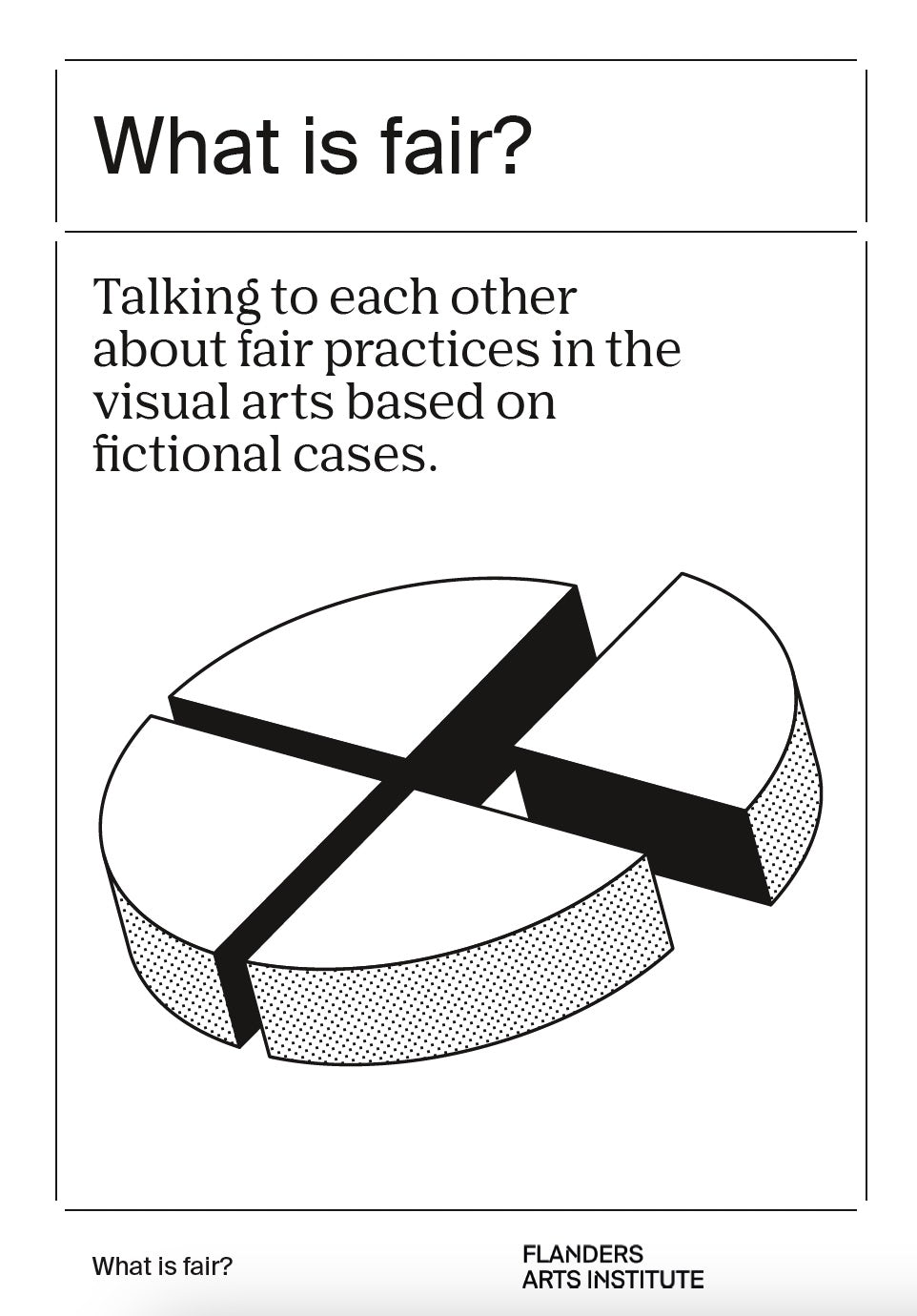What is fair? Talking about fair practices in the visual arts using fictional cases

The conversation tool What is fair? wants to sensitize people to work together in the visual arts in a fair way: think about being compensated correctly, providing a safe and inclusive work environment, being transparent about information and expectations, giving each other opportunities to learn and grow, and working together in trust.
Of all artists, visual artists have the lowest average income. The study Loont Passie (Does passion pay off? – 2019 version only available in Dutch, read the 2016 report here) indicates that the median net annual income of visual artists in Flanders is €18,000. Many are not even remunerated for their work.
But what is proper remuneration for visual artists and freelance curators? Visual artists, curators, subsidized visual arts organizations and contemporary art museums agreed on a guideline for fair collaboration and a compensation calculator (in Dutch) to calculate a fair wage.
Working in the arts sector has long been characterized by power relations, exploitation and mutual competition. This was often justified with arguments such as “artists work out of passion and not for money”, “the invitation contributes to your visibility and reputation” and “other artists will accept our conditions”. But now is the time for the shift to honest collaboration.
Fair cooperation is achieved through an equal dialogue between, for example, an artist, a curator, a gallery, a collector, a museum director or a member of the public.
The discussion tool What is Fair? consists of 20 cases each dealing with different players and different aspects of the visual arts such as residencies, creation, exhibitions and sales. By discussing them with each other and listening to others, you become more aware of what is fair and what is not.
You can download the tool with 20 cases below in Dutch. We also provide an English version with 5 cases, and we have 2 cases in English about transnational fair practices. All of these pdf’s can be downloaded below.
Questions?
Contact Dirk De Wit.


